The Ultimate Guide To The Chicago Marathon
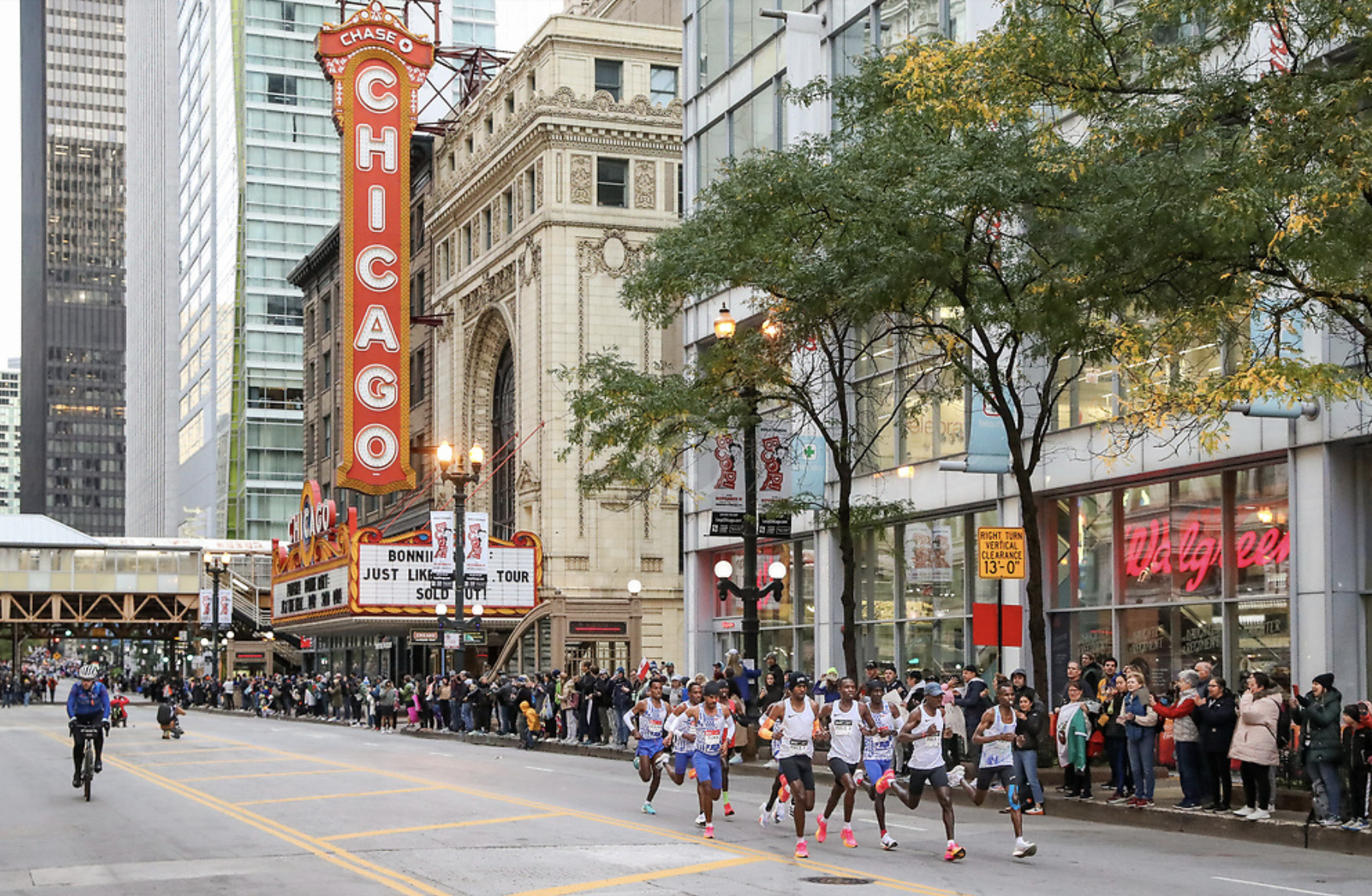
The Chicago Marathon takes place in early October every year and is one of the Abbott World Marathon Majors. In this ultimate runner’s guide to the Bank of America Chicago Marathon, we’ll cover:
- What’s special about the Chicago Marathon?
- The Chicago Marathon Expo & Packet Pick Up
- All the general things to know about running the Chicago Marathon
- The start of the Chicago Marathon and the bag drop
- The Chicago Marathon course
- Supporting the Chicago Marathon
- The bag collection and meeting points after the Chicago Marathon
- How to enter the Chicago Marathon
WHAT’S SPECIAL ABOUT THE CHICAGO MARATHON?
First run in 1977, there have been over one million finishers of the Chicago Marathon on a race which passes through 29 of the city’s neighbourhoods, each offering a vibrant and exciting mix of different sights and sounds.
Around 50,000 finishers are expected in 2024, making it the largest field in the race’s history, with some 1.7 million supporters all along the course cheering on the runners.
It’s a flat, fast course which has produced six world records, including the current men’s world record of 2:00:35 (Kelvin Kiptum 2023), and the second-fastest woman’s time of 2:13:44 (Sifan Hassan 2023). With the Berlin Marathon two weeks before Chicago, the two fastest Marathon Majors come back-to-back.
In 2024, the Chicago Marathon will honour Kelvin Kiptum who ran his 2:00:35 world record there at the 2023 race, and then tragically died four months later in a car crash.
THE CHICAGO MARATHON EXPO & PACKET PICK UP
The Chicago Marathon Expo is held at McCormick Place.
The Expo is open:
Thursday 10 October: 1100-1800
Friday 11 October: 0900-1800
Saturday 12 October: 0900-1800
You can get there via the L train, rideshare or taxi, or pick up a bike share (like Divvy) and cycle there.
Runners must collect their own bibs at packet pick up and cannot nominate someone else to pick it up for them. You must collect them from the Expo during the opening hours and they cannot be mailed to you or picked up on race day. You must take photo ID with you and your packet pick up ticket, which is emailed to you.
At packet pick up, you will collect your bib with timing chip, a gear check bag and a Nike running t-shirt. Your bib identifies your wave number and start corral.
The Expo is massive, with over 160 brands and exhibitors, so prepare to spend a few hours there (and expect to be on your feet for a while – take some snacks to keep up the carb-load!).
The Expo is very well organised (as is the whole Chicago Marathon), but if you prefer to go when the crowds are smaller, then get there on Thursday or Friday morning.
ALL THE GENERAL THINGS TO KNOW ABOUT RUNNING THE CHICAGO MARATHON
Chicago has an early start time, with the first wave and elites beginning at 7:30am. If you aren’t used to running at that time then it’s a good idea to do at least one of your long runs following similar timings to race day.
You cannot wear hydration vests in the Chicago Marathon, though you can have a hand-held, waist belt or race tights with pockets which hold soft flasks. Just be aware that bottles/flasks may be checked when you pass through security (so if you use a powdered energy drink or electrolytes in your water then take extra, just in case – you can fill bottles with water or lemon-lime Gatorade in the race start area).
Headphones are allowed, but selfie-sticks and camera mounts are not allowed.
The GPS is notoriously bad in Chicago, especially in the first few miles when running through tunnels and between tall buildings. If you want the most accurate splits then manually lap your running watch at the mile or km makers.
The race uses mile markers along the course, with each 5km and the halfway mark also having a marker.
The weather can have a big impact in Chicago. The warmest temperature recorded has been 89ºF/32ºC in 2007 and the lowest was 21ºF/-6ºC in 1988. There hasn’t been rain at the race since 2018, and the Windy City could hit you with wind from all directions, though the course tends to mostly be well protected from that. Check the forecast in the days the race before and plan your final race kit and accessories (sunglasses, sunscreen, arm sleeves, warm hat) accordingly. The forecast for 2024 is currently looking clear and mild to warm.
There will be pacers for the following times: 3:00, 3:05, 3:10, 3:15, 3:20, 3:25, 3:30, 3:35, 3:40, 3:45, 3:50, 3:55, 4:00, 4:10, 4:20, 4:30, 4:40, 4:50, 5:00, 5:15, 5:30 and 5:45. If you want to run along with a particular pace group then you can visit the Pace Team booth at the expo where you can get an additional bib to wear on your back (you don’t need this bib to follow a pace pack but it’s a nice extra option).
The race has 20 aid stations, with the first at mile 1.6 and then coming every 1-2 miles. Each aid station is on both sides of the street and extends for one to two city blocks, so there’s plenty of space. Every aid station has water, lemon-lime Gatorade, toilets and a medical tent. Liquid is in paper cups.
Maurten Gel 100 is available on the course (both caffeinated or non-caffeinated) at miles 13.6, 18.2 and 23. Chiquita Bananas are available at three aid stations between miles 19.5 and 22.3. At mile 21.2 is the Biofreeze Pain Relief Zone “where the Biofreeze Cooling Crew will be armed with Biofreeze spray to help Cool the Pain to get participants across the finish line.”
The race has a 6 hour and 30 minute time limit, after which the course re-opens to vehicles. The marathon advises that: “Those who finish outside of the time limit may not be recorded or published as official finishers and may not receive full on-course support from aid stations and traffic safety personnel.” From 4pm-6pm there’s an alternative post-finish area for participants who finish outside of the official course time limit.
There are lactation spaces for postpartum participants. These are available pre-race, between mile 15-16, and post-race.
THE START OF THE CHICAGO MARATHON AND THE BAG DROP
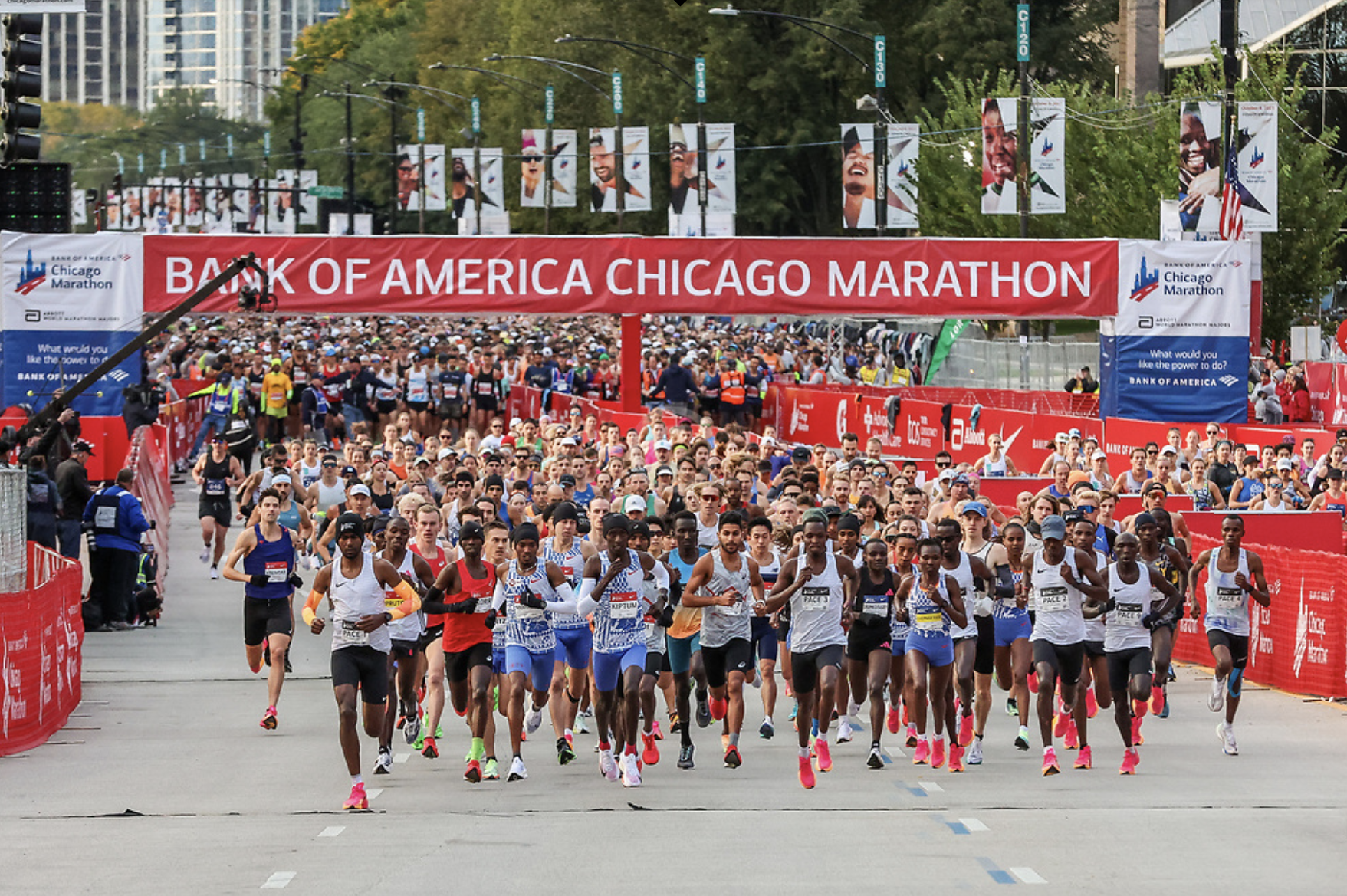
The Chicago Marathon starts and finishes in Grant Park. The park opens to runners at 5.30am. As sunrise isn’t until around 7am, it’s going to be dark in the morning, and will be cold so wear throwaway clothes which you can donate to charity before you run.
The start is easily accessible by several L lines, and public transport is the best option for those not staying within walking distance. Rideshare (Uber, Lyft) is also an option.
You must show your race bib (which must be fastened to your front) to pass through a security check and get into the event village. You can only take the clear plastic race bags you receive at the Expo into the race start – you cannot take your own bags, and personal bags placed inside the clear bags may be checked and confiscated.
Hydration vests are not allowed. Hand-helds and waist belts with soft flasks are allowed but a line in the participation guide about personal drinks says: “Please be aware you may be asked to empty the contents of these containers before entering Grant Park.” If you have a particular powder drink solution you use then take spares in your race bag, just in case. Water and lemon-lime Gatorade are available inside the village.
There are lots of toilets available, and Grant Park is massive, so there is lots of space if you want to warm up (or if you want to find a quiet place to chill out before the race begins).
There are three start waves and 13 corrals. Your race bib will feature this information.
- Wave one (including the elites) starts at 0730. This is for runners in waves A, B, C, D and E
- Wave two starts at 0800. This is for runners in waves F, G, H and J
- Wave three starts at 0835. This is for runners in waves K, L, M and N
You will need to move into your corral well ahead of your start time (they close at least 10 minutes before the start, and can get very crowded, so arrive early). There are more toilets inside the corrals.
THE CHICAGO MARATHON COURSE
It’s flat and it’s fast, with just one sneaky hill to ascend right before the finish line, and nicknamed “Mount Roosevelt.” Overcoming the crest of the hill is your cue to give it everything you’ve got all the way to the finish line just a few hundred metres away.
The Chicago Marathon course rewards patience and good pacing. The streets are wide, the crowds are deep, there aren’t many tight turns, and it’s somewhere you can finish fast if you’ve got enough left in the legs.
When the race begins you’ll be excited and it’s tempting to run too fast, this isn’t helped in Chicago by the fact that your GPS will likely give you inaccurate splits, and the crowds are at their busiest and loudest in the first few miles as you pass through Downtown Chicago. Just take it steady. You can make up time later in the race.
One thing to watch out for: The race has several metal bridges and they are laid with carpets. Try and run over these carpets where possible as the bridges could be slippery, uncomfortable, or be trip hazards.
After running through the Loop you head north for around six miles, run a few blocks west, then head straight back south again. You’ll pass the zoo and run through Lincoln Park (which is a little quieter so settle yourself here). There’s Wrigley Field, home of the Chicago Cubs. Then it’s a busy run through to Union Station which is near halfway, and a soaring view of the Willis Tower.
Every mile or so you’re passing through different neighbourhoods, and each has their own atmosphere for you to enjoy.
By mile 19 you reach Pilsen and hear the Latino music and join the party on the streets. Whether you’re feeling great or having a rough day, this part is fun – and you can probably grab a beer, a tequila or a shot of Malort to keep you going, if you need something stronger than Gatorade!
Then it’s on to Chinatown at around mile 22, which is loud and exciting – and hopefully comes as a good boost late in the race.
You head a mile south as people a mile ahead of you come towards you on the other side of the street. When you reach the final turnaround at mile 23 you’ve got a straight 5km to go to the finish, and the crowds get louder and deeper as you get closer to the end.
Get over the course’s single hill, turn left, then ride the downhill to the finish line and go and get your medal!
SUPPORTING THE CHICAGO MARATHON
It’s expected that around 1.7 million people come out to spectate the Chicago Marathon, making it one of the loudest and most fun marathons for those running, it’s also one of the best to follow friends around given how the course has three big out and back sections.
Check out the course map and see what works best for you, and how ambitious you want to be in following friends and family.
One simple option is to begin near mile 1 then walk to mile 3 and then mile 13, making use of the river walk path to avoid crossing the course. You can then head towards the finish area.
If you want to travel around a bit more, then make use of the Red L line. Start at Fullerton and go across to around mile 5.5, then back to mile 10 (or go to Addison, by Wrigley Field, and see them at miles 7 and 9). Then head south to the Chinatown station and you can catch your runner at mile 21.5 and 25.
THE BAG COLLECTION AND MEETING POINTS AFTER THE CHICAGO MARATHON
You’ll finish the race and will collect your medal and then there are lots of drinks and snacks, including water, protein milk and beer.
You can then collect your bag and make your way to the exit when you’re ready. Friends and family cannot come into the race village, so arrange in advance where to meet them after the finish.
There is a Runner Reunite area within the Mile 27 after party, but spectators will need to pass through security to access this space.
Tom ran the Chicago Marathon last year (see his brilliant video here). One of his top tips for the day after the race is to book onto a river boat tour where you get to see the city from a different angle – and do it while sitting down!
HOW TO ENTER THE CHICAGO MARATHON
Most people get into Chicago via a lottery. The entry window for the 2025 Chicago Marathon is open from 22 October to 21 November. The 2025 Chicago Marathon takes place on Sunday 12 October. Here are details of how to get into the Marathon Majors.
There are also time qualifiers for the Chicago Marathon. These relate to the age you are on race day. Lottery and time qualifiers pay an entry fee of $245 for US residents and $255 for non-US residents.
| AGE | MALE | FEMALE/NON-BINARY |
| 18-34 | 2:55 | 3:25 |
| 35-39 | 3:00 | 3:30 |
| 40-44 | 3:05 | 3:35 |
| 45-49 | 3:15 | 3:45 |
| 50-54 | 3:20 | 3:50 |
| 55-59 | 3:30 | 4:00 |
| 60-64 | 3:45 | 4:15 |
| 65-69 | 4:00 | 4:30 |
| 70-74 | 4:15 | 4:45 |
| 75-79 | 4:30 | 5:00 |
| 80+ | 4:50 | 5:20 |
Around 16,000 runners take part in the Chicago Marathon for a charity.
Chicago has a pregnancy and postpartum policy. They are also providing private and semi-private lactation spaces to postpartum participants which are pre-race, between mile 15-16, and post-race.
***
Do you have any tips for runners at the Chicago Marathon?
All images © 2023 Bank of America Chicago Marathon/Kevin Morris

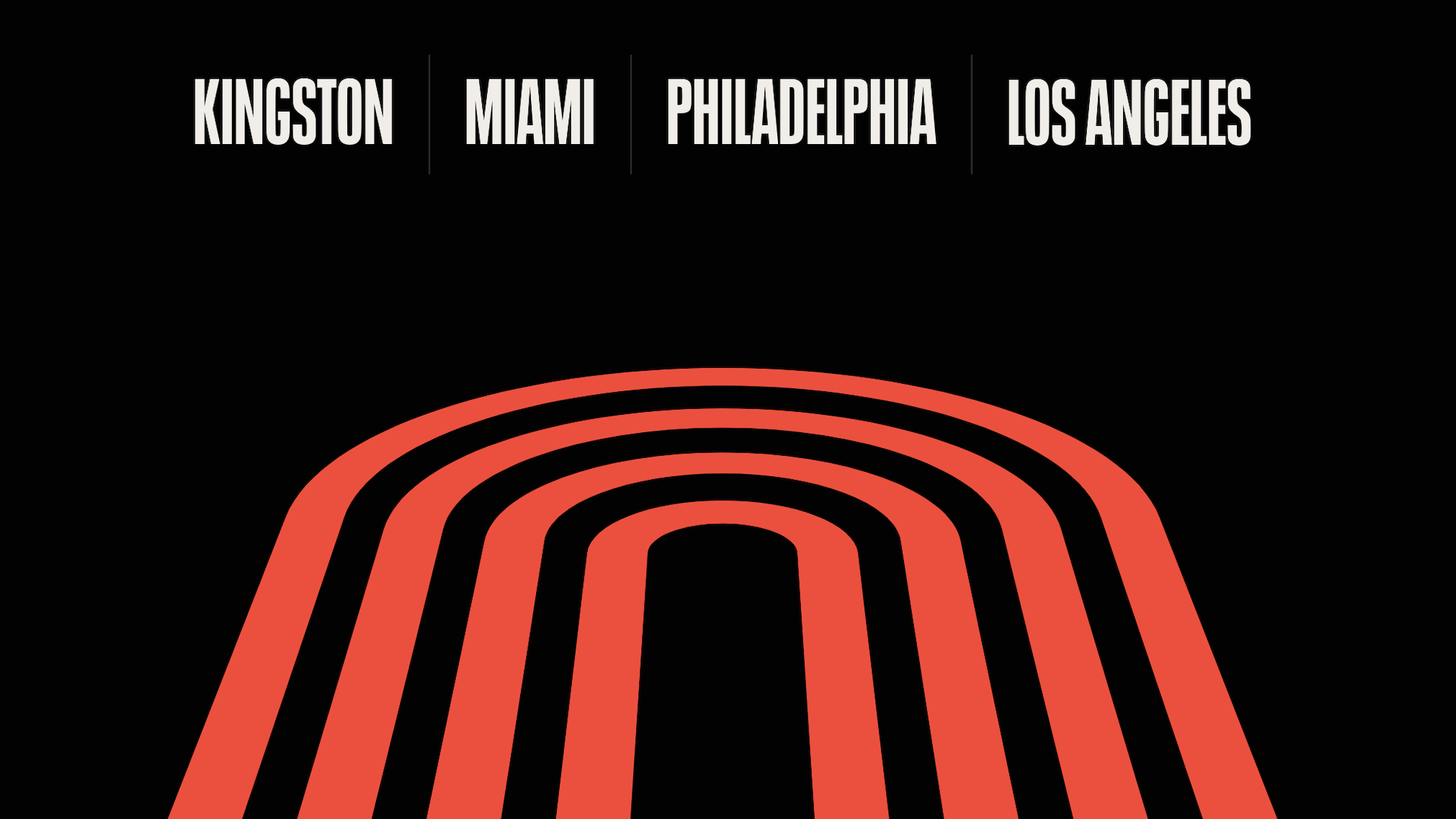
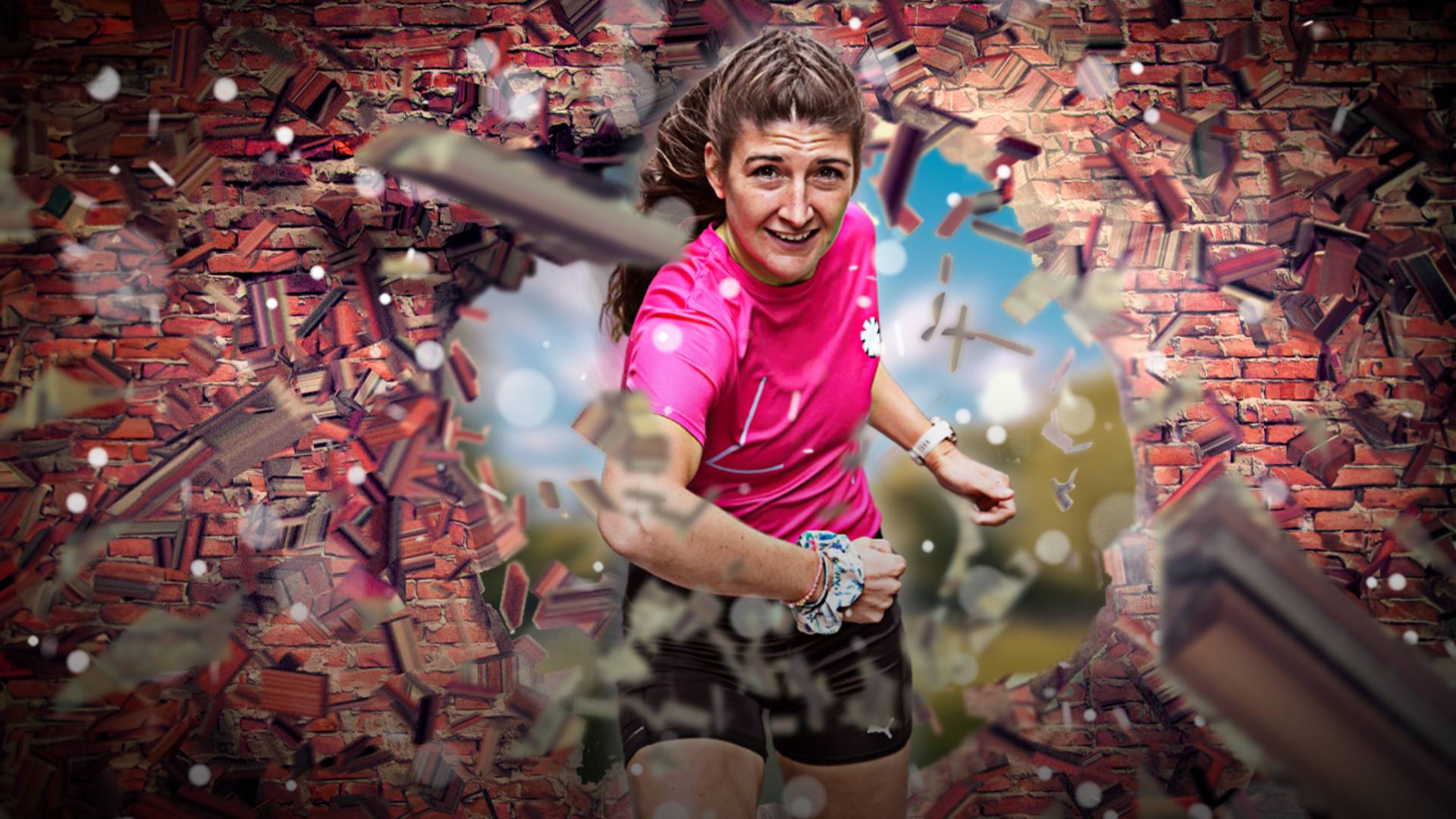
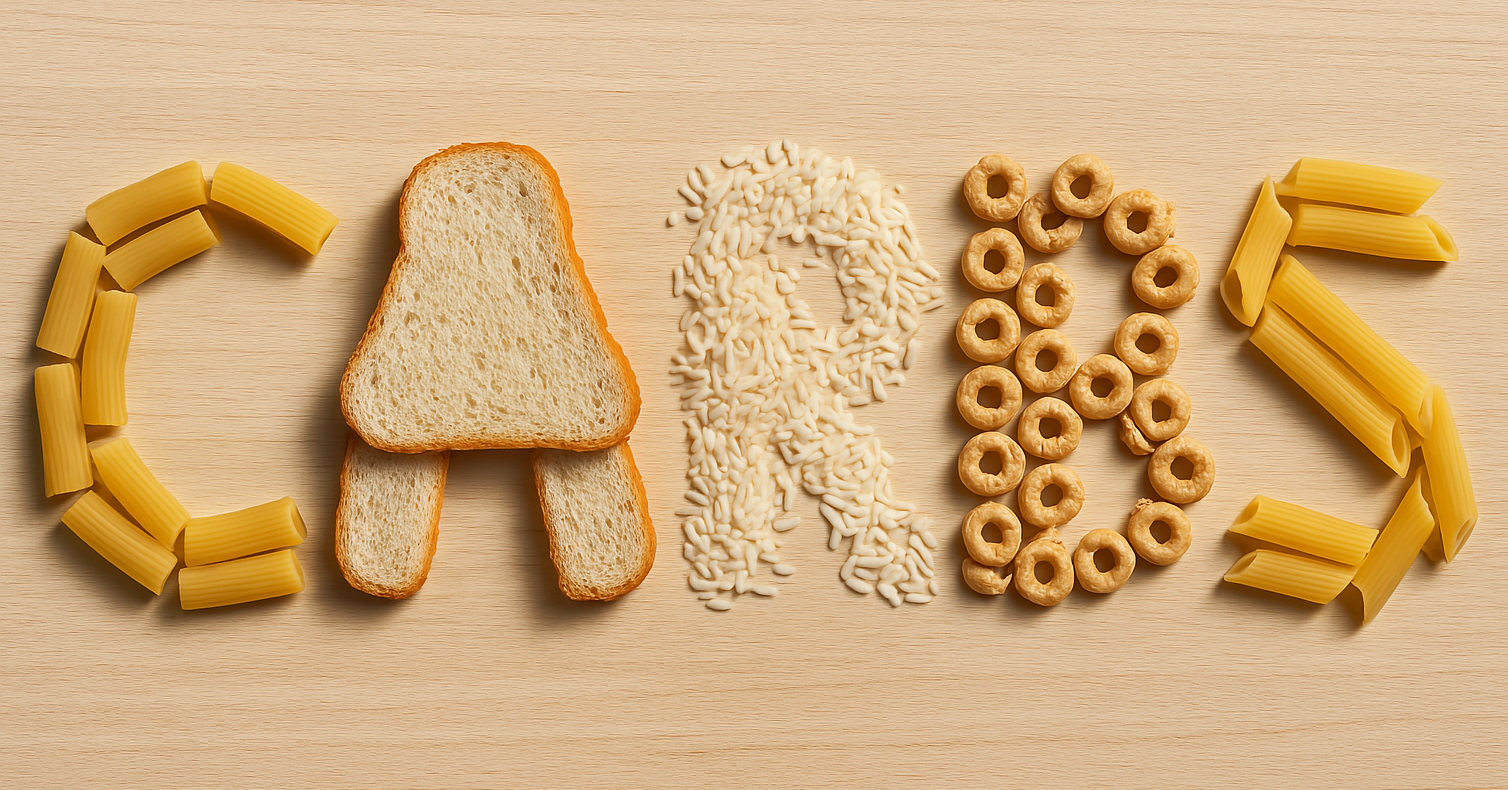
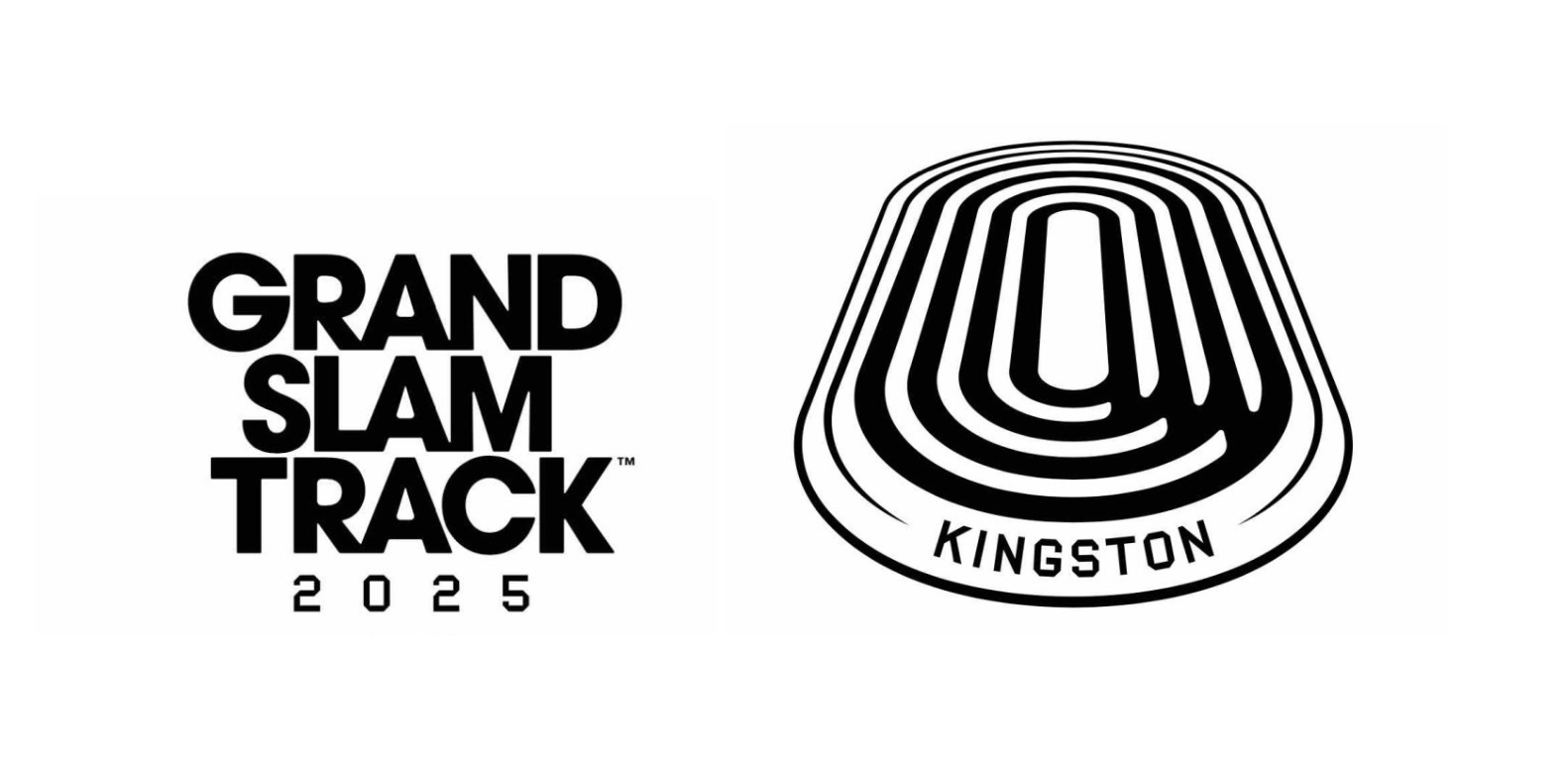
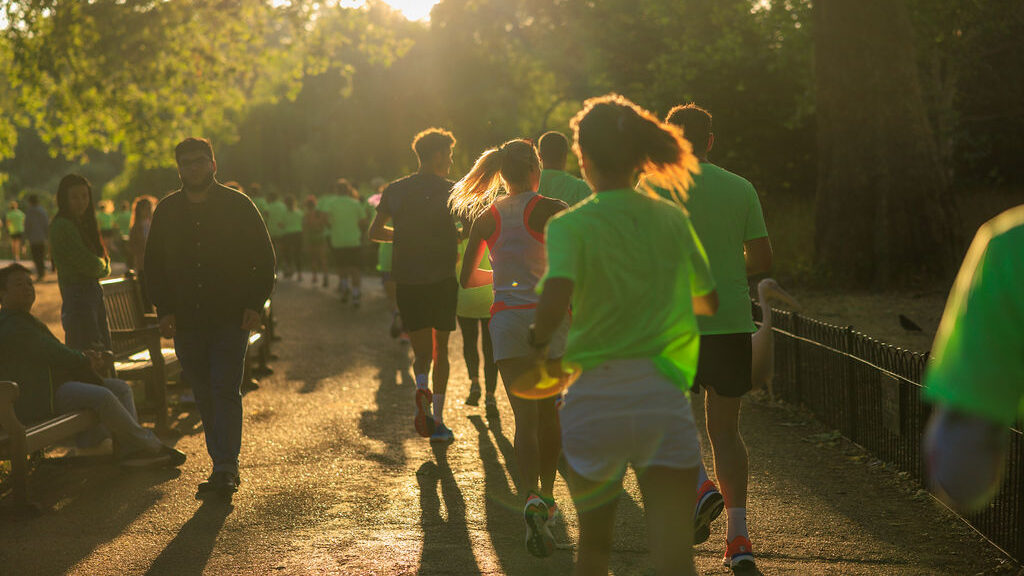




















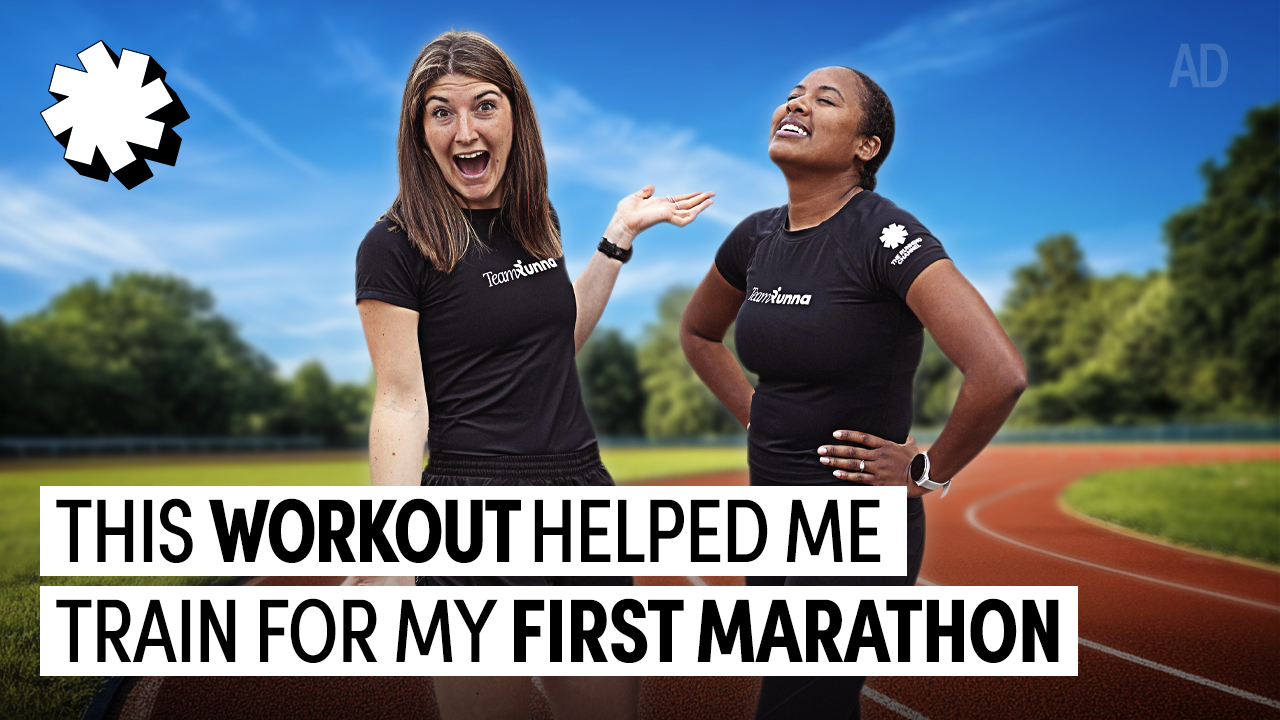

Running News
Ingebrigtsen Stars at World Athletics Indoor Championships 2025 – Plus All The Winners!
Sam Ruthe Is First 15-Year-Old To Run A Four-Minute Mile!
Eliud Kipchoge Will Run The 2025 Sydney Marathon!